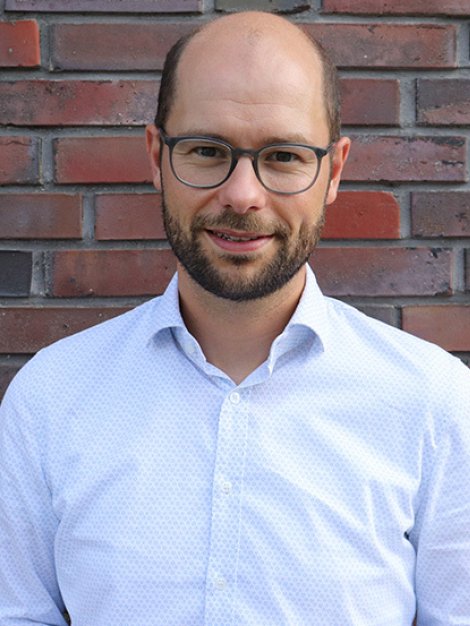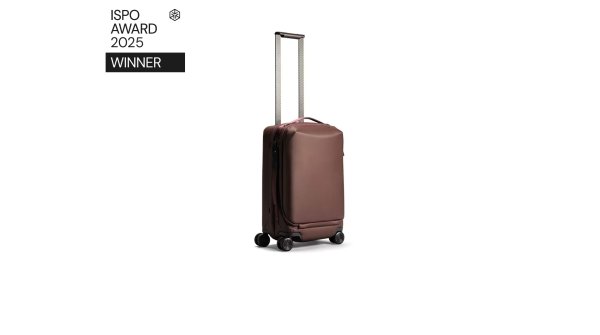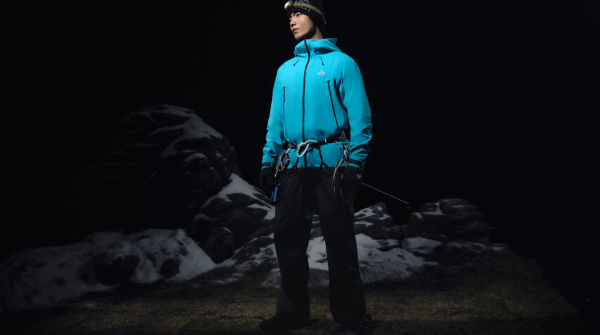ISPO: Mr. Mangelmans, on FIEGE's website, the portrayal of the executives also lists their favorite sports. What does this representation say about the company?
Christoph Mangelmans: It says a lot about how important sports is for the FIEGE company. This does not necessarily have to be the sporting activity itself, but also the values of sport. Team spirit could be mentioned here as a characteristic. These are topics that our managers take on board in their leadership. This is also important for our internal structure: How do we deal with each other when we are trying to achieve our goals?
Sport is omnipresent in our company. In particular, soccer as an overarching theme. Once a year, we organize the FIEGE Soccer Cup. There, up to 3,000 people from all locations of the Group come together and turn it into a family event. All this shows: In the end, it only works together. Sport is a unifying element that radiates strongly into our company.
ISPO: FIEGE is a long-standing logistics provider on the market. Over the years, challenges have certainly changed again and again. Is there anything that has never changed for a company in your industry over the entire period? Something that is always important to be able to survive in the market?
CM: The bottom line is that it always comes down to people. That's the way it's always been and that's the way it will always be. And as much as we will move towards AI and automation, it will always come down to the personal, human component. That, to me, is a truly shining element. It's not about being the fastest packer or having the greatest concepts. In the end, the best people are always needed.
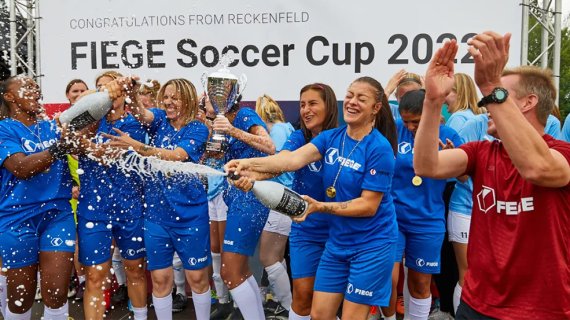
ISPO: Does this also relate to the core value of the FIEGE company?
CM: The core value is the family and here primarily the values of a family. For FIEGE, this includes: Cohesion, controversial discussions, even disputes and then getting along again. Figuratively speaking, we always meet again at the kitchen table, eat something together and are in a good mood.
ISPO: The global economy is generally facing major challenges. This affects companies like FIEGE just as much as your customers. In order for trade and industry to function smoothly, what are currently the greatest challenges from your point of view as a logistics specialist?
CM: First of all, it starts with the changes - with the topic of sourcing. Supply chains have changed fundamentally. Many of the companies are producing in Asia. Because of the continuing difficulties, these companies are increasingly asking themselves what can be relocated to Germany or Europe and what the structures there are like. Even before the pandemic, we chose a different path and steadily expanded our warehouse structures in Europe. At that time, people may have smiled on us.
ISPO: What exactly was being smiled at?
CM: Well, everyone wanted to reduce storage capacities in Europe and lower inventories, precisely because everything was produced in Asia. Temporary storage was then carried out there and then delivered and shipped to Europe. With the current disruption of supply chains, companies are gradually even starting to move parts of production to Europe. In this respect, a warehouse has a much higher significance today than it had in the past.
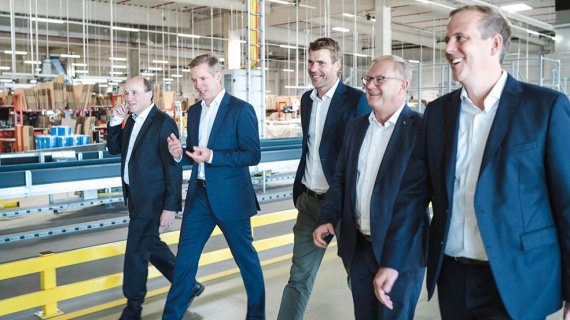
ISPO: What else has changed?
CM: Sales channels have changed extremely in recent years. From a classic supply market to a demand market, in which customers have gained more influence. By way of comparison, consumers used to buy what the companies, the producers, offered. That's very different today.
The issue of distribution channels has also changed. Today, there are a large number of brands that can use an incredible number of channels. Social commerce has come along, marketplaces as well. Omni-channel solutions should be mentioned in this context. An additional challenge is to maintain an overview in all this hustle and bustle in order to find the right customer in the right segment as a producer of sporting goods. This places correspondingly high demands on logistics.
ISPO: Delivery backlogs are also a burden on the sports industry. Goods get stuck, are delivered late. How long do you think it will take before the movement of goods returns to normal?
CM: It's really not possible to make any binding statements about that. It is, even if it sounds strange, actually more faith than knowledge. In this respect, we believe that this situation will definitely continue for the next twelve months. This opinion reflects collected impressions from the industry. In any case, it remains a major challenge for many companies.
ISPO: How can a logistics provider support sports brands in moving needed parts and products faster from Asia to Europe and Germany?
CM: There are various ways. In the end, if there is not enough time to transport it on a ship, things can be flown. But that is much more expensive and also not sustainable. What we currently offer in Europe are overflow warehouses. As companies have moved away from just-in-time delivery, we as logistics providers don't just pick up the goods for the coming summer in November or December, but much earlier. This means that we have to create storage capacity to buffer these goods in Europe before they are transferred to the actual distribution centers. The big challenge is to make goods available to customers.
ISPO: What logistics solutions does FIEGE offer for manufacturers and retailers?
CM: Big Data and data analytics play a big role in our portfolio in order to be able to perform supply chain analyses to make the most accurate predictions possible. These are subject areas in which we are strong and which we offer to our customers. Especially in terms of transport capacities, predictions are essential. Making accurate predictions via data management and data analysis is one of the focus areas in which we have invested heavily in the past.
ISPO: What other services does FIEGE offer its customers?
CM: We try to find the best commerce solution for our customers. On the one hand, there is the classic logistics, goods receiving, storage, and shipping of goods. Whether to stationary channels or directly to the marketplace, we take care of both. But there is also the route from the warehouse to the end customer via D2C. We also support our customers in covering all the topics that take place digitally. We can set up order management or accounts receivable systems for this purpose.
And there is a third area: If we have customers who want to ship to end consumers on the European continent, we take over their parcel distribution. However, we do not take care of this physically, but orchestrate it across Europe. For each country, we select the best carrier abroad, but also the best carrier in the return, so that the brand there can get the best value for money in Europe.
We offer our customers modular solutions, logistics from A to Z - and we mean it. This means our customers can put together individual solutions based on their needs. Like in a construction kit. The best solution for the situation at hand, whether it's just the shipping module, the management module or complete omnichannel logistics. Everything is freely selectable. The important thing is that we only offer things that have added value. If a module does not add value to the supply chain, we don't do it.
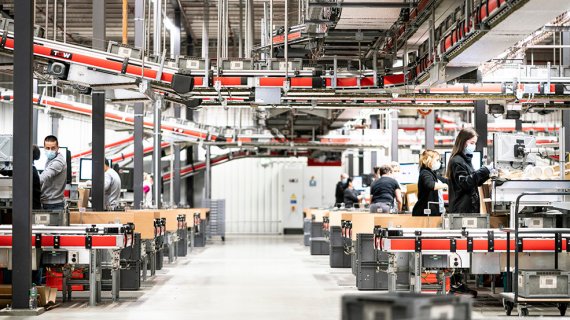
ISPO: D2C continues to make strong inroads. Where do you see opportunities for companies that consistently follow this path?
CM: Convenience is the most important point from my point of view. A consumer wants to be happy. No matter where, he wants to have the best buying experience. That can be in the store, but it can also be that he gets information in the store, but then buys online. A brand should deliver the best convenience for the customer to experience. However, there is not one clearly defined convenience; the issue always has to be dealt with individually.
ISPO: If you venture a look into the future, how will the market, will the sports industry change in your view?
CM: The market will increasingly develop from a supply to a demand market. This also means that the topics that move end customers and customers, such as sustainability, fast availability or convenience, will be the topics that drive. An answer must be found to this change. The issue of sustainability in particular is rapidly gaining in importance in the sports industry. And this is where we must and want to work closely with our customers in a spirit of partnership and look for good solutions. Our goal is clearly defined: Our CEOs Jens and Felix Fiege want to hand over the company to the next generation not only economically successful, but also climate-neutral.
The last mile will play a central role on the road to climate neutrality. What trips can be avoided to deliver parcels? Returns are also a huge issue, of course. Not only because they incur high costs, they also play a crucial role in terms of sustainability. For every parcel that goes out today, the return rate is usually around the famous 50 percent. Avoidance strategies are needed here. This is where the specialized trade comes into play again. Customers could also return a return to a specialist retailer. All these challenges need to be tackled now. It is a very exciting time and we would like to help shape it with our solutions.
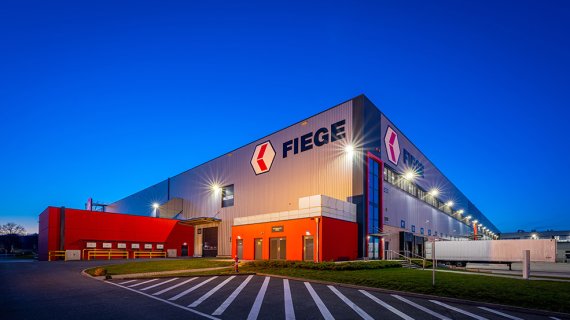
About
Name: Christoph Mangelmans (39)
The father of two sons is Managing Director BU Consumer Products & Digital Services at FIEGE and in this position an expert for omnichannel logistics (B2B, B2C and D2C) and digital services in eCommerce. His industry focus is on fashion and consumer products. In addition to his professional expertise, Christoph Mangelmans is a passionate marathon runner and member of the supervisory board of SC Preußen Münster.
- ISPO awards
- Mountain sports
- Bike
- Design
- Retail
- Fitness
- Health
- ISPO Job Market
- ISPO Munich
- ISPO Shanghai
- Running
- Brands
- Sustainability
- Olympia
- OutDoor
- Promotion
- Sports Business
- ISPO Textrends
- Triathlon
- Water sports
- Winter sports
- eSports
- SportsTech
- OutDoor by ISPO
- Heroes
- Transformation
- Sport Fashion
- Urban Culture
- Challenges of a CEO
- Trade fairs
- Sports
- Find the Balance
- Product reviews
- Newsletter Exclusive Area
- Magazine
